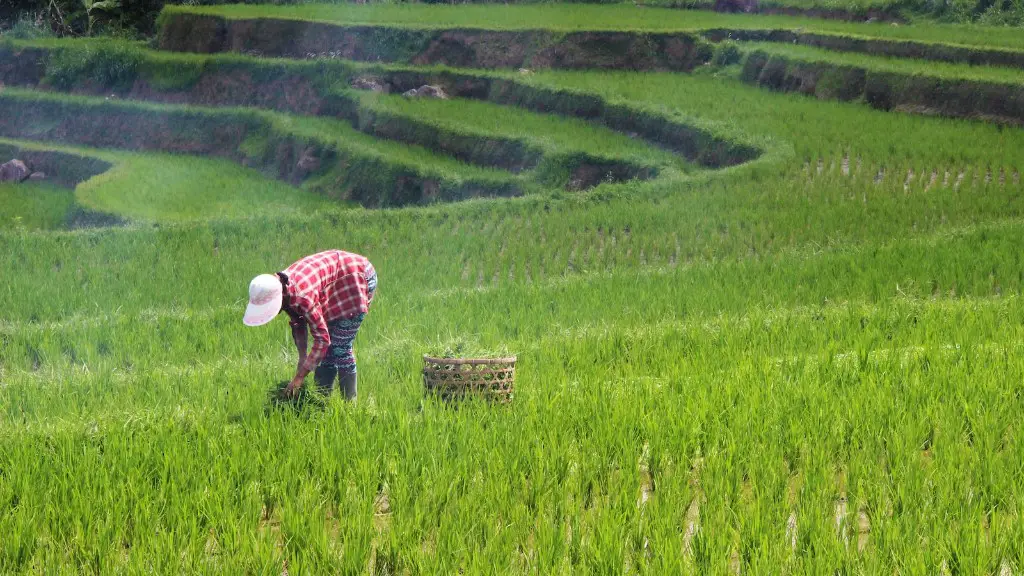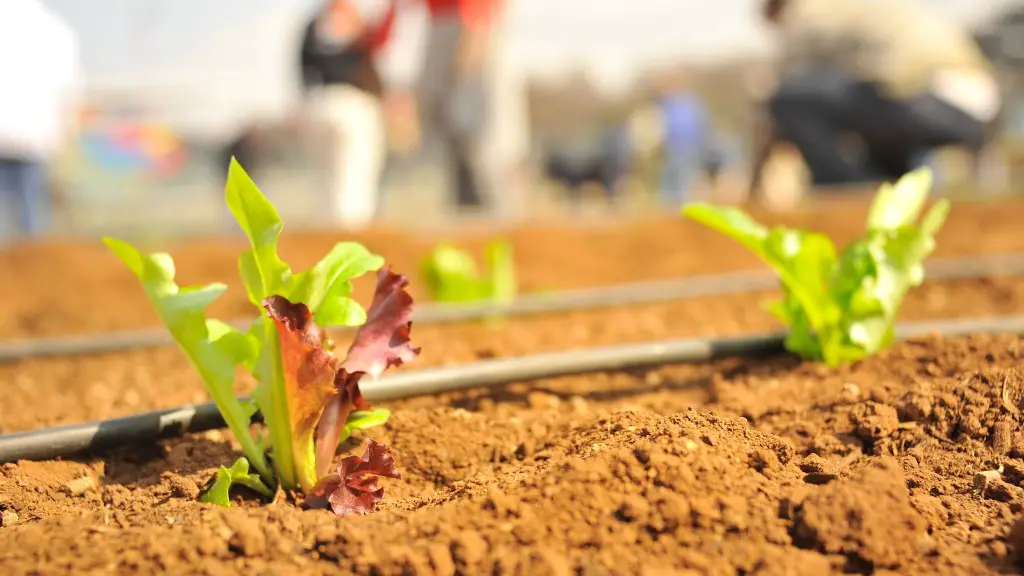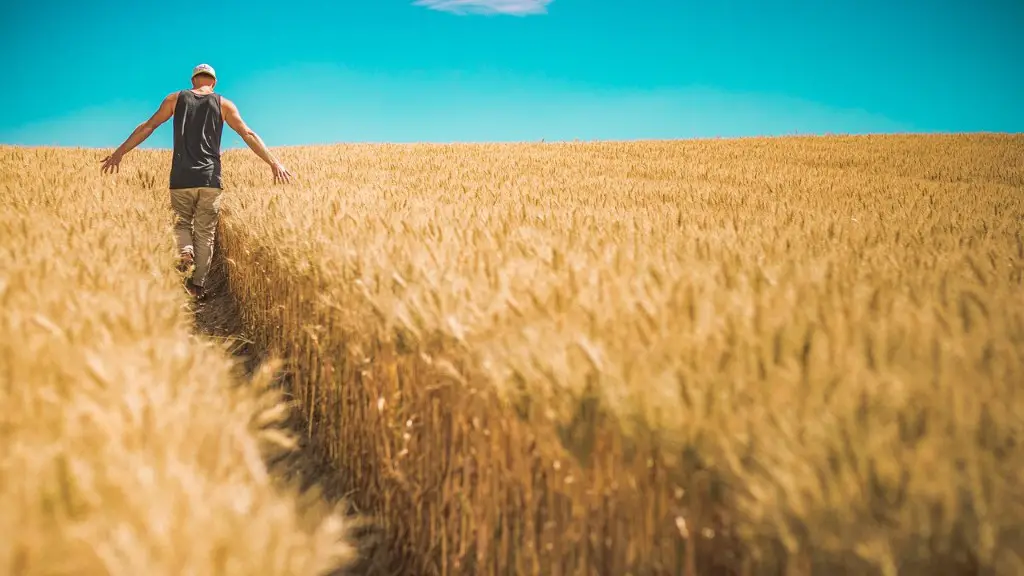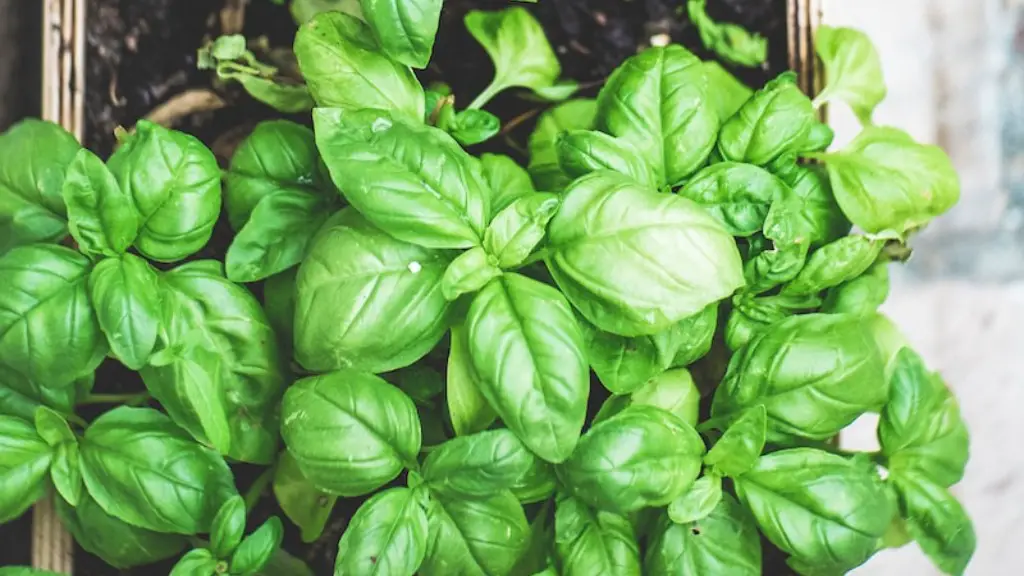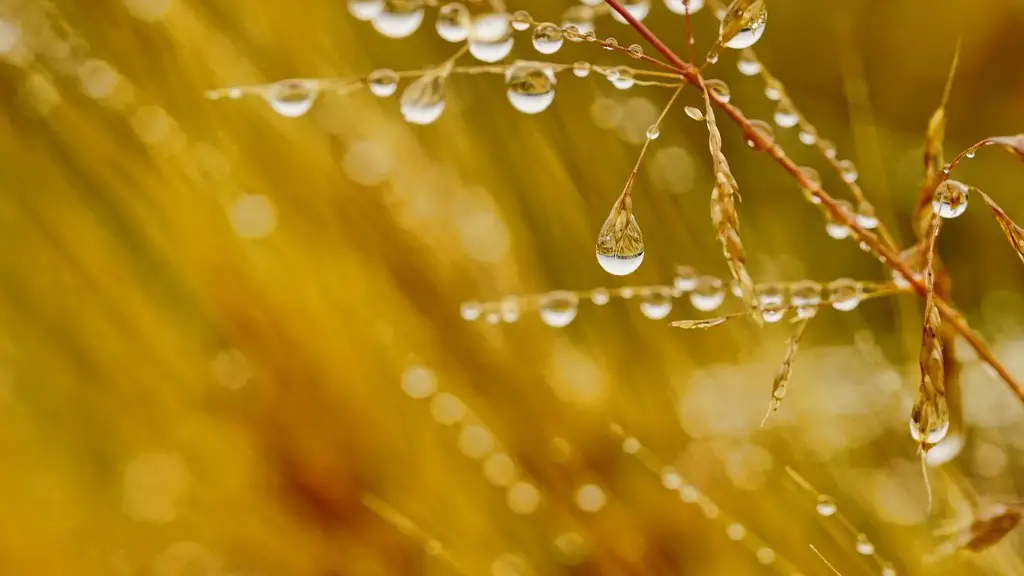Plastic is an increasing presence on our planet, in our environment, and in agriculture. In recent years, the use of plastics has grown significantly due to their durability, ease of use, and cost efficiency. However, the use of plastic in agriculture has had some serious implications on soil health, water safety, and animal and human health.
Plastic pollution has been increasingly linked to agricultural runoff. Runoff is water that flows off of the land and can contain anything that is on the land, including fertilizer and pesticides, which contain potentially harmful chemicals. These chemicals can be carried by runoff into nearby water sources, leading to water contamination and posing a health risk to humans and animals.
In addition to contamination of water sources, plastic can accumulate in soils, creating a physical barrier that prevents plants from receiving nutrients and water. This causes plants to become stressed and more prone to pests and diseases. Furthermore, when plastic is buried in soil, the soil has a reduced capacity to store carbon. This leads to reduced soil fertility, posing a major challenge for farmers.
Plastic can also be ingested by animals, leading to serious health complications such as blockage of the digestive tract. Furthermore, some plastics contain harmful chemicals, such as BPA, which can be taken up by animals and humans and can cause serious health complications.
Finally, plastic has been associated with the spread of disease. Plastic is often used to contain fertilizers and pesticides, and if not properly disposed of can become a breeding ground for pathogens, leading to the spread of plant and animal diseases.
Impact on Wildlife
The use of plastic in agriculture has had a major impact on wildlife. Plastic can cause physical harm to animals, such as entanglement or ingestion. It can also reduce the availability of food sources for animals by limiting their access to plants or organic litter. Additionally, the accumulation of plastic in the environment can reduce natural habitats, making it harder for animals to survive.
Furthermore, plastic has been associated with the spread of disease as mentioned earlier. Animals can come into contact with water or soil contaminated with plastic and carry the bacteria or pathogens to other habitats. This can lead to an increase in disease prevalence in flora and fauna populations.
Lastly, plastic can reduce the quality of the air by releasing chemical pollutants, such as phthalates, into the atmosphere. These chemicals are known to cause respiratory and reproductive complications in humans and animals.
Impact on Human Health
The effects of plastic in agriculture extend far beyond wildlife, as plastic can also have serious consequences for human health. The chemicals that are released into the environment as a result of plastic pollution can enter the food chain, making their way into humans through the food and water they consume. Ingestion of chemicals such as BPA has been linked to serious health complications, such as cancer and reproductive issues.
In addition, inhalation of airborne pollutants that are released from plastic can cause respiratory problems. This is especially concerning for those who work in areas close to farms. Lastly, increased water contamination caused by plastic can lead to an increased prevalence of water-borne diseases, such as cholera and typhoid.
Mitigation Strategies
In order to reduce the impact of plastic on agriculture and health, mitigation strategies must be implemented. For example, compostable plastics, such as bioplastics, can be used in place of conventional plastic. These types of plastics are made from plant-based materials, and will break down in nature much quicker than conventional plastics.
In addition, farmers can reduce the amount of plastic they use by implementing efficient storage and harvesting techniques. This could include using reusable packaging materials, such as cloth sacks, instead of plastic bags. Furthermore, effective waste management systems should be put in place to ensure that plastic waste is properly disposed of, to reduce accumulation in soils.
Regulatory Action
In addition to on-the-ground efforts, governments should take action to regulate the use of plastic in agriculture. Regulations should focus on limiting the types of plastic that can be used and enforcing proper waste disposal systems. Additionally, taxes and fees should be placed on plastic. This would encourage manufacturers to reduce their plastic usage and would generate revenue to help fund clean-up and prevention efforts.
Governments should also invest in research to develop safer and more sustainable materials for agricultural use. This could include bioplastics, as well as other environmentally friendly alternatives, such as paper or hemp. This would reduce the impact of plastic in agriculture and help to ensure a healthier environment for humans and wildlife.
Educational Campaigns
Finally, educational campaigns should be implemented to raise awareness about the issue of plastic in agriculture. These campaigns should focus not only on the dangers of plastic, but also on the solutions that have been proposed to reduce its impact. This could be done through school programs and public service announcements to ensure that everyone is aware of the problem and potential solutions.
In conclusion, plastic pollution in agriculture is a problem that must be addressed. The use of plastic has had a wide range of negative impacts on soil health, water safety, animal health, and human health. To mitigate these impacts, governments must take regulatory action and encourage the use of safer and more sustainable alternatives, such as bioplastics. Additionally, educational campaigns should be implemented to spread awareness and create incentives to reduce plastic use.
